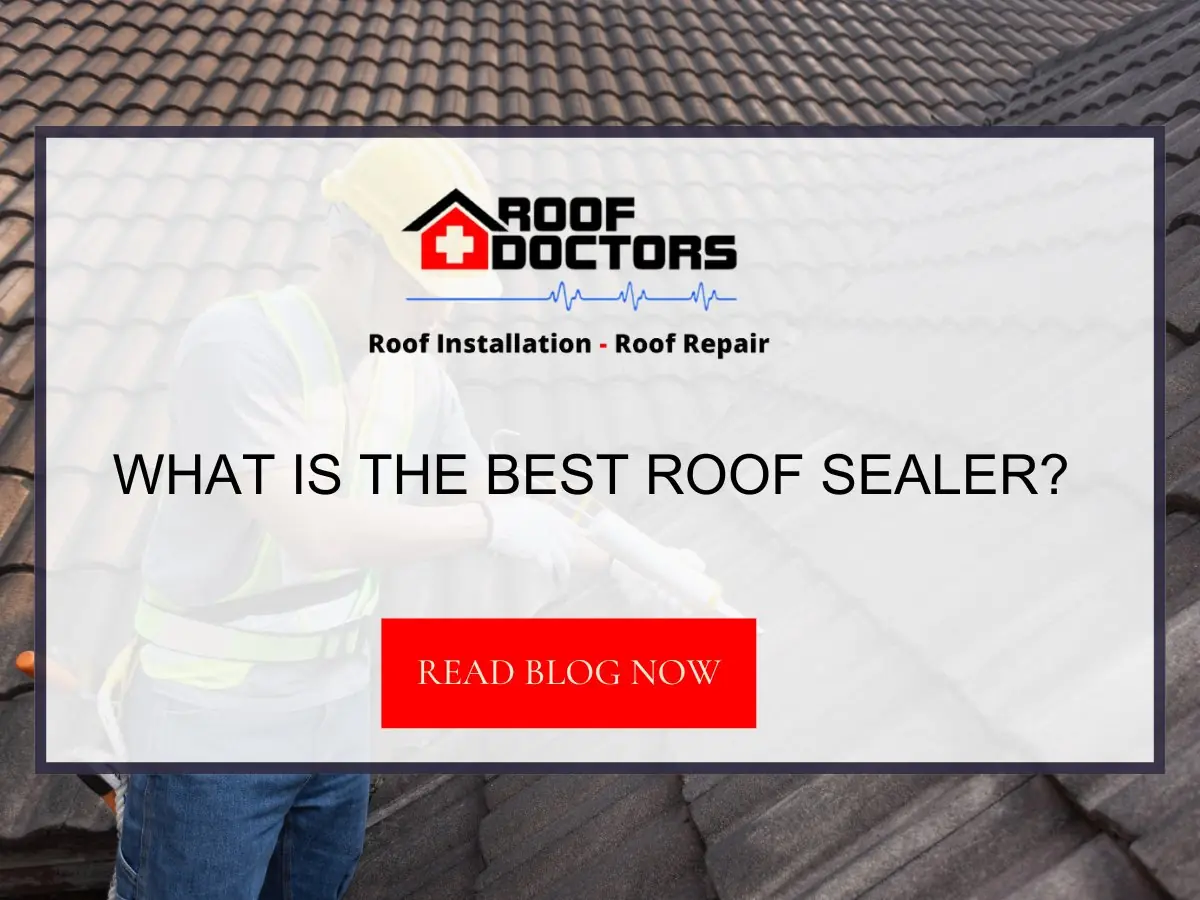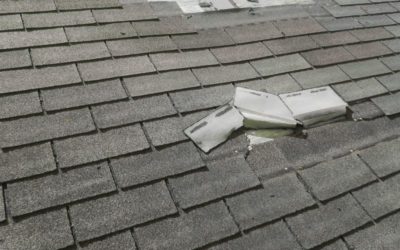Choosing the best roof sealer can be challenging due to the numerous brands and types of sealers in the market. Roof sealing is an essential step in maintaining the integrity of a roof and protecting the home from various weather conditions.
The Roof Doctor is aware of the significance of a properly functioning roof to the stability and durability of your structure. Using a quality roof sealant to prevent leaks and water damage is a crucial part of preventative roofing care.
This article intends to do just that, providing a thorough comparison and contrast of the features, benefits, and downsides of several roof sealants from various manufacturers.
We want to ensure that our customers are well-informed when it comes to selecting the right roof sealer for their needs.
Types of roof sealers
A quality roof sealer will not only keep your roof watertight, but it will also help your roof last longer. They’re made to fend against rain, scorching sun, and other climatic hazards for roofs.
Several varieties of roof sealers are on the market, each with its own set of advantages and disadvantages. It’s important to learn about the various roof sealers and their individual characteristics before making a final choice.
The most common types of roof sealers are:
1. Elastomeric sealers
As they can stretch and contract with the roof, elastomeric sealants are a favorite among homeowners. They can withstand rain, last a long time, and shield your roof from harmful UV radiation.
Elastomeric sealers are versatile and can be used on a variety of roofing materials such as concrete, metal, and asphalt.
2. Silicone sealers
Silicone sealants are well-suited for use in highly exposed locations due to their great resistance to the harmful effects of ultraviolet light. Due to their resistance to water and their adaptability, they can be used on roofs that see a lot of foot activity.
The application of silicone sealers is quick and simple, and they don’t call for the use of a primer, which helps you save both time and money.
3. Asphalt-based sealers
Flat roofs often use asphalt-based sealers due to their water resistance and widespread use. They adhere well to a wide variety of substrates and can be applied with relative ease.
They tend to break over time, though, so they need to be reapplied frequently.
4. Acrylic sealers
Water-based acrylic sealers provide the best protection for rooftops that see a lot of foot traffic. In addition to providing superior adhesion to a wide variety of substrates, they are also well-known for their superb UV resistance.
Moreover, acrylic sealers are non-toxic and safe for the environment.
5. Polyurethane sealers
Polyurethane sealants last long and perform well in high heat. You can use them on many different kinds of roofs, and they do a great job of keeping out water and UV rays.
You can choose between a water-based version and a solvent-based one.
6. Rubber sealers
Flat roofs are a perfect candidate for rubber sealants due to their high water resistance. They’re simple to implement and sturdy enough to withstand scorching heat.
There are both solvent-based and water-based solutions available for rubber sealers.
7. Tape sealers
Tape sealers are a novel method of sealing roofs, particularly in inconvenient places. In addition to providing strong adhesion to a variety of substrates, they are also quite simple to apply.
Furthermore, heat and ultraviolet light are no match for tape sealers.
8. Aromatic sealers
Aromatic sealers, which are derived from solvents, are renowned for their long lifespan and high durability. They’re great for high-traffic roofs because of the resistance they offer against water and ultraviolet light.
Strong odors and fumes may be produced, though, so they should be used with caution.
Factors to Consider When Choosing a Roof Sealer
Several considerations should be made while picking a roof sealer to guarantee that you get the right one. This is due to a combination of variables, including
1. Roof material
The effectiveness of the roof sealer can be affected by weather variables such as precipitation, temperature, and humidity. Waterproof sealants are useful in high-rainfall regions, whereas sealants that reflect ultraviolet light can mitigate the effects of hot temperatures.
2. Climate conditions
Climate conditions such as rainfall, temperature, and humidity can affect the performance of the roof sealer. For instance, areas with high rainfall may require a waterproof sealer, while areas with high temperatures may require a sealer with UV reflectivity to reduce heat absorption.
3. Water resistance and waterproofing
While choosing a roof sealer, water resistance, and waterproofing are essential qualities. For instance, elastomeric sealers have great waterproofing capabilities, making them an excellent choice in wetter climates. Sealants made from asphalt, on the other hand, are impervious to water and can be used on flat roofs.
4. Type and purpose
Depending on your needs, you can choose a sealer that offers UV protection, water resistance, or both! It is critical to know why you’re using a sealer and to choose a sealer that works for your specific situation. For a flat roof, an asphalt-based sealant, for instance, is the best choice.
5. UV reflectivity
When it comes to places that get a lot of direct sunlight, UV reflectivity is key. Silicone sealants have great UV reflectivity, making them an excellent choice for regions that get a lot of direct sunlight.
6. Flexibility
Being adaptable is key in climates where temperatures rise and fall frequently. Elastomeric sealers are appropriate for places with high-temperature variations because they are flexible and can expand and contract with the movement of the roof.
7. Longevity
The sealer’s durability plays a major role in lowering the cost of repairs.
Polyurethane sealants are long-lasting and resistant to high and low temperatures, making them an excellent choice for places that experience extreme weather.
8. C5M Rating
The C5M rating indicates how well the sealant can withstand corrosive conditions. If the C5M rating is high, the material can withstand more corrosion. Rust-Oleum is a manufacturer of sealants with a high C5M rating, making its products suitable for use in coastal regions.
Best Brands of Roof Sealers
Like any product category, roof sealers are available in a wide variety of brands, each with its own set of pros and cons. You should think about your roof’s unique requirements while picking a roof sealer.
In the end, it’s up to your own needs and preferences to determine which alternative is ideal. We advise you to talk to a professional roofing contractor in order to find out what kind of sealant will work best for your roof, as this relies on a number of different aspects.
1. Henry Company
Henry Company is an established name in the roofing market, and its extensive product line includes roof sealants. These sealants are made to be very effective at keeping water out and are resistant to the elements, making them perfect for humid climates or those that experience extreme weather.
Henry HE587372 Roof Coating, Henry HE587372 Reflective Roof Coating, and Henry HE587372 Roof Coating are a few of their best-selling sealants.
Henry HE587372 Roof Coating sealant is a great option for those who want excellent water resistance and UV reflectivity. It’s also easy to apply and offers long-lasting protection.
Reviews:
“It sealed my roof”
Rating:
4.5⭐/ 5.0 of 757 ratings on Amazon
2. Rust-Oleum
The sealers manufactured by Rust-Oleum are noted for their superior resistance to water, ultraviolet radiation, and other damaging environmental factors. The sealers they use are not only effective but also resistant to chemicals and salt water.
A number of sealants, such as Rust-Oleum 301012 Wall-Surface Repair Products, Rust-Oleum 267972 LeakSeal Flexible Rubber Coating, and Rust-Oleum 265495 LeakSeal Flexible Rubber Coating, are available from the company.
Reviews:
“After 3 years of a leaking fountain, this product works. Have tried every product to stop a slow leak until this one. A+”
Rating:
4.2⭐/ 5.0 of 4,158 ratings on Amazon
3. Loctite PL S30 Blackproof and Flashing Sealant
When it comes to roofing, some professionals choose Loctite PL S30 Blackproof and Flashing Sealant. This sealant has been developed to provide superior waterproofing and weather resistance, making it a good choice for locations that experience heavy rainfall and severe climate fluctuations.
It is also compatible with many different kinds of roofing materials thanks to its high adherence.
Reviews:
“Seals great no leaks!”
Rating:
4.7⭐/ 5.0 of 1,959 ratings on Amazon
4. Dicor Self-Leveling Lap Sealant
Popular among roofers is DicoSelfr -Leveling Lap Sealant. This sealant can be used with EPDM and TPO roofing materials, and it provides superior waterproofing and weather resistance, as well as a strong adhesion to aluminum, mortar, wood, vinyl, galvanized metal, fiberglass, and concrete.
If you own an RV and are in need of a high-quality, long-lasting solution for the roof, this sealant is your best bet. It’s self-leveling, so you can get a nice, even coating without much effort. It’s not as adaptable as other choices and can be difficult to remove if you ever need to.
Reviews:
“Worked great on our RV flip”
Rating:
4.7⭐/ 5.0 of 8,903 ratings on Amazon
5. Liquid Rubber Waterproof Sealant
Because of its low VOC emissions and simple application, Liquid Rubber Waterproof Sealant has become a favorite among do-it-yourselfers. This sealant can be applied with a brush, roller, or spray gun and is formulated to be waterproof and resistant to the elements.
It is non-toxic to both animals and plants, making it an excellent choice for environmentally conscious consumers. It’s not as reflective as some other choices and can be costly.
Reviews:
“It works, period!”
Rating:
4.4⭐/ 5.0 of 1,911 ratings on Amazon
6. Flex Seal Liquid Rubber in a Can
Another well-liked brand among do-it-yourselfers is Flex Seal Liquid Rubber in a Can.
This sealant can be applied with a brush, roller, or spray gun and is formulated to be waterproof and resistant to the elements. It’s flexible, so it can expand and contract as the roof does, making it a good choice for places with high-temperature swings.
There are white and clear versions available.
Reviews:
“This stuff is amazing”
Rating:
White: 4.5⭐/ 5.0 of 3,438 ratings on Amazon
Clear: 4.4⭐/ 5.0 of 3,848 ratings on Amazon
7. Gorilla Waterproof Patch & Seal Tape
An alternative to traditional roof sealants, Gorilla Waterproof Repair & Seal Tape is applied like a standard tape. This sealer is user-friendly and built to last, making it ideal for a wide range of tasks that require waterproofing or protection from the elements.
It is adaptable and can take the shape of any surface, making it a great choice for places with unusual contours. There are white and black versions available.
Reviews:
“Loved it no dislikes”
Rating:
White: 4.4⭐/ 5.0 of 16,572 ratings on Amazon
Black: 4.4⭐/ 5.0 of 17,806 ratings on Amazon
Do you need roof repair or replacement?
If you want your roof to last as long as possible without incurring expensive repairs or replacement costs, The Roof Doctor recommends scheduling regular roof maintenance. There’s no time to waste if you spot roof problems, so don’t hesitate to call in the pros if you discover any symptoms of damage or leaks.
If the damage is minimal, roof sealant can be used to patch up the leak. The safety and stability of the structure may depend on repairing or replacing the roof if the damage is severe or if the roof has reached the end of its useful life.
Nonetheless, a professional roofer should be consulted to ascertain the full amount of the damage and the most appropriate course of action. If you need any sort of roof work done, The Roof Doctor is here to help.


